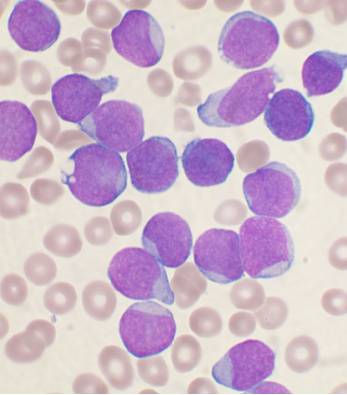The sub-type of AML has a mutation in a gene called FLT3, found in about 30 percent of patients’ leukemia cells.
These mutations are linked to more aggressive disease that often results in rapid relapse. In this first-in-human study, researchers treated relapsed patients with the drug gilteritinib, that blocks FLT3. The researchers of the Abramson Cancer Center at University of Pennsylvania published their findings today in The Lancet Oncology.
In an early phase 1 and 2 trial aimed at establishing safety and optimum dose, the researchers started with low doses of gilteritnib and increased the doses in patients whose AML had relapsed or was no longer responding to chemotherapy. The team focused on dose levels at 80mg and above, which were associated with more potent inhibition of the FLT3 mutation and higher response rates.
Of the 252 patients on the study, 67 received a 120mg dose, 100 received 200mg and found it was a well-tolerated drug that led to frequent and more-sustained-than-expected clinical responses. Of the 252 patients, 191 (67%) had the FLT3 mutation. Overall 49 percent of those showed a response to the drug, while only 7 (12%) who didn’t have the mutation responded.
A new multicenter trial, which compares gilteritinib to standard chemotherapy in patients with FLT3 mutations who relapsed or did not respond to initial therapy, is now underway, and Penn's Abramson Cancer Center is one of the sites.
These mutations are linked to more aggressive disease that often results in rapid relapse. In this first-in-human study, researchers treated relapsed patients with the drug gilteritinib, that blocks FLT3. The researchers of the Abramson Cancer Center at University of Pennsylvania published their findings today in The Lancet Oncology.
In an early phase 1 and 2 trial aimed at establishing safety and optimum dose, the researchers started with low doses of gilteritnib and increased the doses in patients whose AML had relapsed or was no longer responding to chemotherapy. The team focused on dose levels at 80mg and above, which were associated with more potent inhibition of the FLT3 mutation and higher response rates.
Of the 252 patients on the study, 67 received a 120mg dose, 100 received 200mg and found it was a well-tolerated drug that led to frequent and more-sustained-than-expected clinical responses. Of the 252 patients, 191 (67%) had the FLT3 mutation. Overall 49 percent of those showed a response to the drug, while only 7 (12%) who didn’t have the mutation responded.
A new multicenter trial, which compares gilteritinib to standard chemotherapy in patients with FLT3 mutations who relapsed or did not respond to initial therapy, is now underway, and Penn's Abramson Cancer Center is one of the sites.

No comments:
Post a Comment